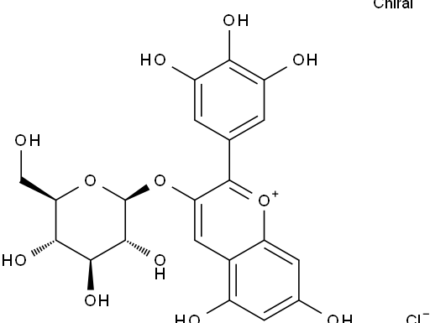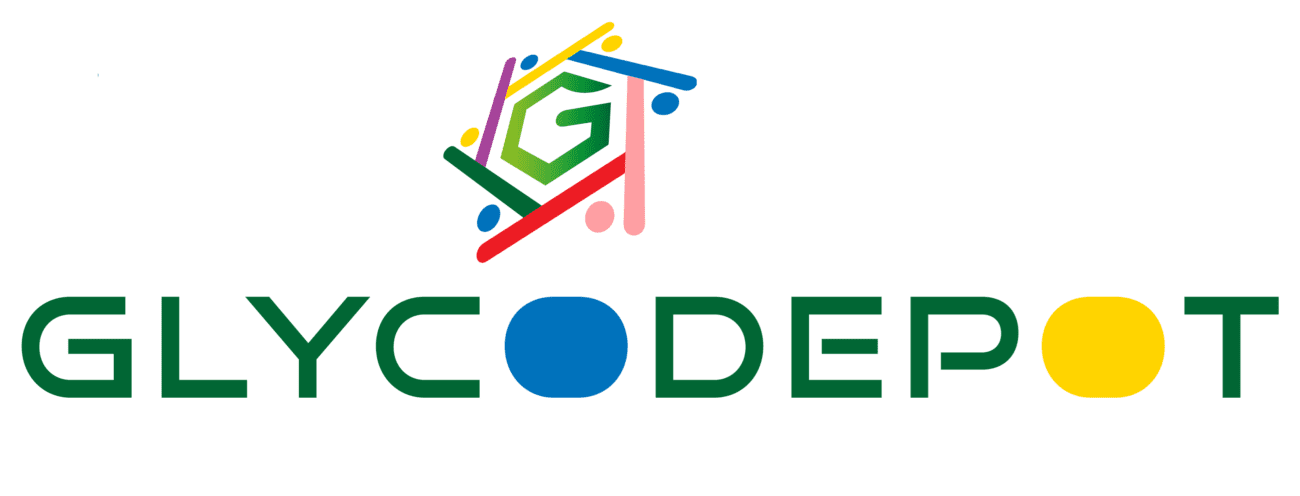


Delphinidin 3-glucoside chloride is a naturally occurring anthocyanin and a glycosylated form of delphinidin, a flavonoid pigment commonly found in various fruits and vegetables. This compound is recognized for its vibrant color and potential health benefits, including antioxidant and anti-inflammatory properties.
Chemical Properties
1 in stock
Dodecanoyl D-Sucrose (CAS No. 25339-99-5) is a nonionic surfactant and a fatty acid ester of sucrose, known for its applications in various biochemical and industrial processes. Below is a detailed description of its chemical properties, physical characteristics, applications, and safety considerations.
Chemical Identification
1 in stock
Glucoraphanin potassium salt is a potassium salt form of glucoraphanin, a naturally occurring glucosinolate predominantly found in cruciferous vegetables such as broccoli, Brussels sprouts, and kale. This compound is of significant interest due to its potential health benefits and role in plant defense mechanisms.
Chemical Identity
1 in stock
Hyaluronic Acid (11kDa) (CAS No. 9004-61-9) is a low molecular weight variant of hyaluronic acid, a naturally occurring glycosaminoglycan widely recognized for its exceptional hydrating and skin-rejuvenating properties. With a molecular weight of 11 kDa, this form penetrates deeper into the skin compared to higher molecular weight variants, making it ideal for targeted skincare and biomedical applications.
Chemical and Physical Properties
1 in stock
IPTG (Isopropyl β-D-1-thiogalactopyranoside) is a widely used molecular biology reagent that serves as an inducer for gene expression in systems utilizing the lac operon. Its ability to mimic allolactose, a natural lactose metabolite, allows it to activate transcription of genes under the control of the lac operator, making it an essential tool in recombinant protein production.
Chemical Properties
1 in stock
Luteolin 7-O-rutinoside, with the CAS number 20633-84-5, is a flavonoid glycoside derived from various plants, including Vernonia bugulifolia and Artichoke. This compound is recognized for its diverse biological activities and potential health benefits, making it an area of interest in both nutritional science and pharmacology.
Chemical Identity
1 in stock
Me-triacetyl-β-D-glucopyranuronate-Ph-CH2OH-Fmoc (CAS No. 894096-02-7) is a specialized cleavable linker utilized in the synthesis of antibody-drug conjugates (ADCs), which are innovative therapeutic agents designed for targeted cancer treatment. This compound plays a crucial role in delivering cytotoxic drugs specifically to cancer cells while minimizing damage to healthy tissues.
Chemical Properties
1 in stock
Methyl 2-deoxy-3,5-di-O-benzoyl-2-fluoro-4-thio-β-D-arabinopentofuranoside, with CAS Number 197647-15-7, is a chemical compound notable for its application in research, particularly in the field of nucleoside analogues. Here is a detailed description of this compound:
Chemical Information
1 in stock
Methyl tetra-O-acetyl-β-D-glucopyranuronate (CAS No. 7355-18-2) is an acetylated derivative of β-D-glucopyranuronic acid, widely used in organic synthesis and carbohydrate chemistry. This compound is characterized by its multiple acetyl groups, which enhance its stability and reactivity.
Chemical and Physical Properties
1 in stock
Migalastat hydrochloride, with the CAS number 75172-81-5, is a pharmacological chaperone used primarily in the treatment of Fabry disease, a genetic disorder caused by the deficiency of the enzyme alpha-galactosidase A (alpha-Gal A). This compound is marketed under the brand name Galafold and is indicated for patients with amenable GLA variants.
Chemical Properties
1 in stock
Miglitol (CAS No. 72432-03-2) is an oral alpha-glucosidase inhibitor used to manage type 2 diabetes mellitus by reducing postprandial blood glucose spikes. With a molecular formula of C₈H₁₇NO₅ and a purity of 98%, it appears as an off-white to light yellow crystalline powder.
Chemical and Physical Properties
1 in stock
n-Decyl-β-D-maltoside (CAS No. 82494-09-5) is a non-ionic surfactant and glycoside widely used in biochemical and biophysical research. It is particularly known for its applications in membrane protein studies due to its ability to solubilize and stabilize proteins without denaturing them.
Chemical and Physical Properties
1 in stock
n-Dodecyl-β-D-maltoside (CAS No. 69227-93-6) is a non-ionic surfactant and glycoside widely utilized in biochemical and biophysical research, particularly for the solubilization and stabilization of membrane proteins.
Chemical and Physical Properties
1 in stock
n-Undecyl β-D-maltopyranoside is a nonionic surfactant and detergent that is primarily used in biochemical research for the solubilization and stabilization of membrane proteins. Its unique properties make it an essential tool for various applications in molecular biology, particularly in the study of membrane protein interactions and functions.
Chemical Properties
1 in stock
n-Undecyl-β-D-Thiomaltopyranoside is a nonionic surfactant and a glycoside derivative that is commonly used in biochemical and biophysical research. It serves as a detergent for solubilizing membrane proteins and stabilizing them in solution, making it essential for various applications in molecular biology.
Chemical Properties
1 in stock
N-[(2R,3R,4R,5S,6R)-2-[2-[2-(2-azidoethoxy)ethoxy]ethoxy]-4,5-dihydroxy-6-(hydroxymethyl)oxan-3-yl]acetamide (CAS No. 86520-54-9) is a specialized azido sugar derivative that is significant in biochemical research and synthetic chemistry. This compound is characterized by its complex structure, which includes multiple functional groups that enhance its reactivity and utility in various applications.
Chemical Properties
1 in stock
Not a member? Create an account
Already got an account? Sign in here